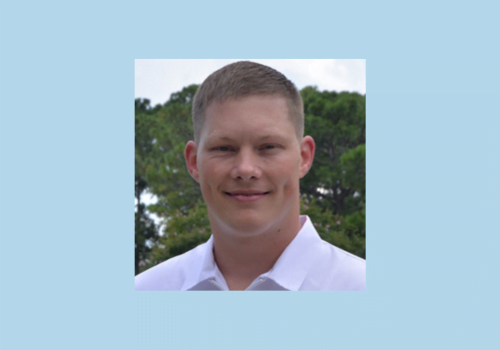
Jonathan Parker
Number 46, November 17, 2015
Jonathan Parker ’16 said studying for his A.S.N. was not like the Army. Sergeant Parker served in Operation Iraqi Freedom I and III.
“In the Army, they show you once and you are expected to pay attention and get it right the first time. In the nursing program, they guide you through it. The instructors don’t abandon you, but stand right there with you in the clinical setting.”
That doesn’t make it any easier, however. “You have to be prepared to study – a lot,” he explained. “Nursing has to be your #1 priority. No hanging out. No TV.”
One of the differences, according to Parker, is how the material is presented. “Questions are presented in scenarios. It is how you apply what you’ve learned that becomes critical. Fast recall is required – just like in the service – but you are drawing conclusions from symptoms. It’s almost like a crime scene. Like a detective, you look at the evidence, all the angles and interactions.”
Parker has experience with that as well. Based at Fort Stewart, he joined the Hinesville police department after completing his military service. He used his veteran’s benefits to obtain an associate degree in criminal justice through a highly-advertised, for-profit online university while working as a police office. But he was stunned to learn that his benefits had been exhausted with only a two-year degree to show for it.
“My advice to any vet is to make sure you really understand the G.I. bill limitations,” he stressed. “Don’t get caught in the expense of online coursework for an associate degree, no matter how easy it sounds.”
His wife, Courtney, is a nurse at St. Joseph’s/Candler Hospital in Savannah. She convinced him to consider a career move to nursing, stressing the portability and options the nursing degree offered. “I like how fast-paced and action-oriented nursing is,” he said. “I like working with the public, one-on-one. Both my service and police training prepared me to make quick decisions.”
He worked full time while she studied nursing at Armstrong Atlantic. Now they are reversing those roles. He is using student loans to fund his studies and will complete the program in two years. “After researching carefully, Coastal Georgia was the only school I applied to,” he added. “Not only did they have a terrific reputation, but they also have an amazing pass rate for the licensure exams and a R.N.-to-B.S.N. program I can move on to that’s fast-paced, affordable, and online.”
Parker commutes from Richmond Hill to Brunswick, but he said he doesn’t mind the drive because he uses it as study time. “Between classes I study in the library. I record my class notes on my phone and then play them back during the drive.”
He’s taking this summer off, however. “The past nine months have been study, study, study. The next nine months will be the same. I need a break, some down time to enjoy my family.” That includes quality time with his 18-month-old baby daughter, Kendall.
Parker has also found an outlet in writing. “I have seen, done, and experienced things in my life that putting down on paper helps me deal with,” he said. His work was published in Seaswells, the College’s award-winning literary and arts magazine, for both the 2014 and 2015 editions. His prose piece, “Baghdad Unicorn,” won second place in the 2014 Austin/Garner Prose Contest and was selected by College President Dr. Aloia to read at the magazine release party that spring. “My Journey through Death” won third place this year.






